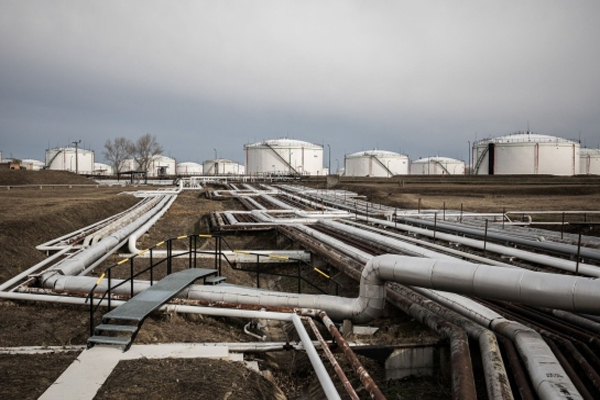
Grant Smith, Julian Lee and Bill Lehane, Bloomberg News
LONDON
Energiesnet.com 07 02 2024
OPEC’s crude production remained steady for a third month, while some key members continued to pump above agreed limits.
The Organization of Petroleum Exporting Countries produced an average of 26.98 million barrels a day in June, or 80,000 a day less than during the previous month, according to a Bloomberg survey. Small reductions in Iraq and Nigeria drove the decline.
The survey showed that Iraq and the United Arab Emirates have yet to fully implement cutbacks agreed in tandem with other leading members at the start of this year. Baghdad has also failed to follow through on additional compensation curbs pledged to offset earlier cheating.
The cuts by OPEC and its partners, spearheaded by group leader Saudi Arabia, have had some success in balancing global markets against a tide of new supplies from the US and other parts of the Americas. Brent crude futures are trading near $87 a barrel, close to the highest in almost two months.
The recovery — while potentially painful for consumers still reeling from years of inflation — should bolster revenue for OPEC+ members, who largely rely on petroleum sales to cover government spending. However, it may still not be enough: Riyadh requires prices close to $100 a barrel to finance an ambitious economic overhaul, according to the International Monetary Fund.
To push crude higher the alliance may need to fully deliver its pledged reductions, but efforts to improve implementation have shown limited results.
In June, Iraq reduced output by 30,000 barrels a day to 4.25 million a day. A pullback in exports brought the country closer to its designated ceiling, but Baghdad still remains about 250,000 barrels a day above that quota, even before the lack of extra “compensation cuts” are factored in. The nation has chafed for years against OPEC+ limits as it seeks to rebuild a war-shattered economy.
Saudi Arabia’s production remained broadly steady at 8.99 million barrels a day, according to the survey. It reduced exports sharply, by 9% to 5.61 million a day, though shipments often fall at this time of year as the country burns more fuel at home for power generation and air conditioning.
Last month, the OPEC+ coalition outlined plans to gradually reverse its supply restraints and begin to revive output from the fourth quarter. But when prices immediately slumped, ministers emphasized that the increases are provisional and could be postponed.
The alliance is due to review its next move when major members hold an online monitoring meeting on Aug. 1.
Bloomberg’s survey is based on ship-tracking data, information from officials and estimates from consultants, including FGE, Kpler Ltd. and Rapidan Energy Group.
–With assistance from Anthony Di Paola, Verity Ratcliffe, John Deane, Lucia Kassai and Fabiola Zerpa.
bloomberg.com 07 01 2024












